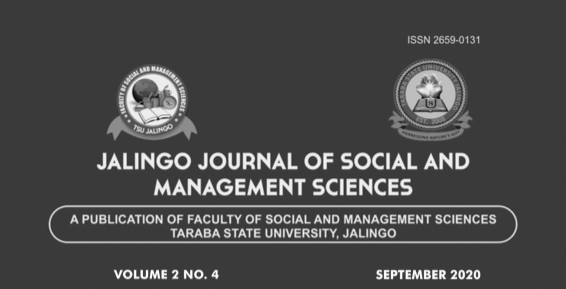Local Government Autonomy and Fiscal Viability in Nigeria: Evidence from Taraba State
Keywords:
Local Government, Local Autonomy, Fiscal Viability, Grassroot Development, Constitution, Intergovernmental Fiscal RelationsAbstract
As a tier in the politico-fiscal federalism arrangement of Nigeria, the local government has a constitutional mandate to deliver governance at the critical grassroot level, for the attainment of politico-economic development and globalism. The capacity of a local government to deliver on the mandate, however, is dependent on its fiscal pedigree. This study contends that the inadequate fiscal capacity of the local government in Nigeria is a consequence of the contrived constitutional and legal machinations, intended to institutionalise dependency in the inter-governmental fiscal relations. The objective of this study is to examine the viability of the much coveted local government autonomy, in the light of the weak fiscal capacity. Given the level of imbalance in the existing fiscal relations among the various tiers of government, Equilibrium Theory provided the framework of the study. In the expository analysis, adopting documentary research method, data were gathered from published sources, including local government councils’ records, Nigeria’s Constitutions (as amended), Federation Revenue Act 2002, and academic journals, among others. Oral telephone interviews were also held with some top officials of council managements, to clarify observed ambiguities. It was found that the forces of the constitutional assignment of “dehydrated” revenue sources to local governments, the “inequitable” revenue allocation formula prescribed by the Legislature, and the weak institutional apparatuses, interplayed to clog or wither the kinetic energy in local government councils, thereby reducing the effort to inert status. In conclusion, local government autonomy, without fiscal viability, as the case of Taraba State, may be counter-productive. It was therefore recommended, among others, that constitutional and legal reforms, aimed at adjusting the extant fiscal imbalance, should be undertaken by the Federal Government, and other relevant authorities.

Downloads
Published
Issue
Section
License
Copyright (c) 2023 JALINGO JOURNAL OF SOCIAL AND MANAGEMENT SCIENCES

This work is licensed under a Creative Commons Attribution-NonCommercial 4.0 International License.
